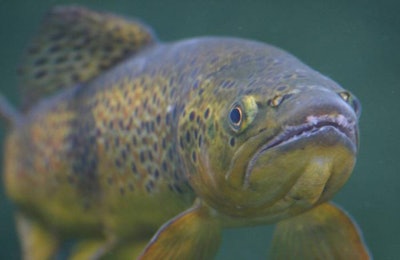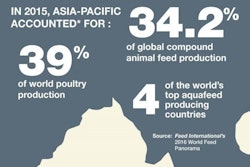
An algal bloom has caused losses in Chile’s salmon industry of 10 percent of annual production since the start of 2016, according to USDA Foreign Agricultural Service reports. Having faced previous challenges, Chile’s salmon industry appeared to be recovering in late 2015, as the balance between prices and input costs became more favorable, but the algal bloom in 2016 has caused additional problems.
Impacts on Chile’s aquafeed sector likely
WATTAgNet recently reported that the top producers of feed for salmon and trout are Norway and Chile, which together supply about 75 percent of the global total.
Chile produced about 1.3 million metric tons of salmonid feed in 2014, or about one-third of the global salmonid feed supply.
The latest problems afflicting the salmon industry in Chile are likely to cut its output significantly unless other markets can be found for its fish feeds.
Recent losses for Chilean salmon industry
The alga causing the most recent problems for the Chilean salmon industry, Pseudochattonella verruculosa, thrives in the climatic conditions that have prevailed after the El Niño phenomenon. This algal overgrowth has led to the loss of up to an estimated 100,000 metric tons of farmed salmon, mainly in the northern part of the country’s 10th region, Los Lagos. These fish would have been marketed at the end of 2016 and early 2017. One estimate from Fish Vet Group puts the losses at 23 million fish at a cost of US$800 million to the industry and government.
Salmon prices have increased slightly since the algal bloom started, but the lower production levels ahead look likely to affect employment within the salmon companies affected in Chile, according to FAS.
Already, Marine Harvest has announced a 500-person workforce reduction in its Chile operations, citing “the recent algal bloom and poor results over the last year.” A complete restructuring of that business is scheduled after the release of the company’s first quarter results in May. According to the company’s 2015 annual report, just under 532,000 metric tons, or more than one-quarter of Marine Harvest’s total salmon production, came from its operations in Chile.

















